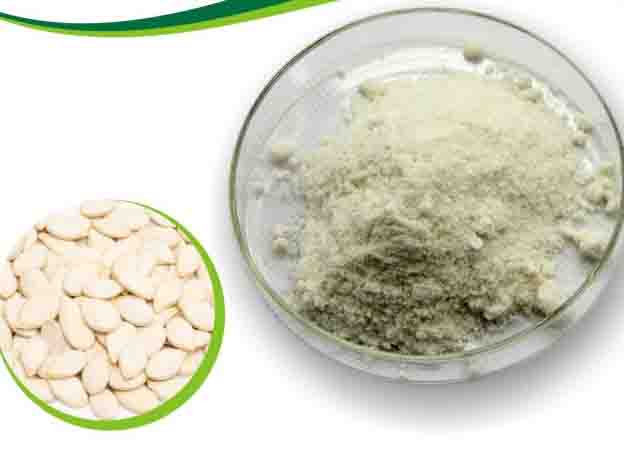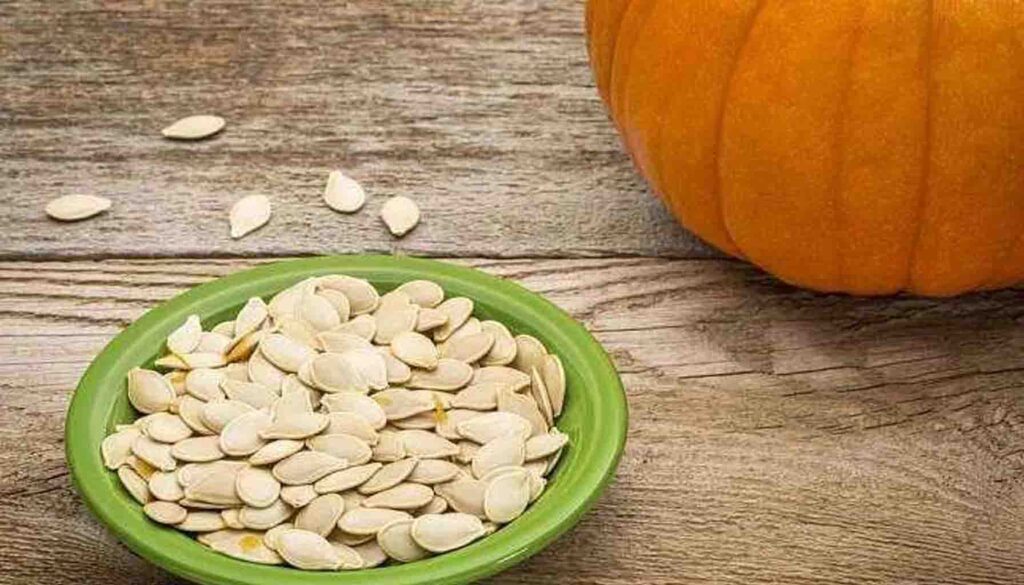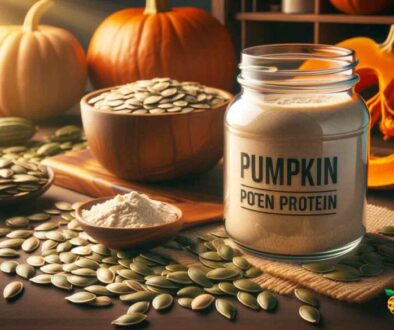Pumpkin Seed Protein: Processing Impact & Functional Changes
Elevate health with organic pumpkin seed protein, a rich source of plant-based nutrition. Boost immunity, heart health, and more!
Pumpkin seed protein is derived from the mature seeds of plants belonging to the Cucurbitaceae family, specifically from the pumpkin. Pumpkin seeds are also known as pepitas, white melon seeds, golden melon seeds, and various other names. Rich in nutrients, pumpkin seeds contain approximately 50% fat, 30%-40% protein, and after defatting, the protein content in pumpkin seed protein can exceed 60%. Moreover, the amino acid composition of its protein is diverse, making it an excellent plant protein source.
Basic Introduction:
Organic pumpkin seed protein appears as a fine powder, ranging from white to light green, with a protein content generally equal to or greater than 60%. The distinctive rich aroma of pumpkin seeds sets pumpkin seed protein apart from other plant proteins.
Product Source:
The mature seeds of the pumpkin, a member of the Cucurbitaceae family, also known as winter squash or pie pumpkin, are obtained from a one-year herbaceous plant.
Main Components:
Pumpkin seed protein is characterized by high protein content, dietary fiber, low fat, and sodium, making it the preferred choice for those seeking to optimize their physical well-being. For individuals on a low-calorie diet for weight management, substituting a portion of dietary protein with pumpkin seed protein not only reduces cholesterol and saturated fat intake but also achieves a balanced nutritional intake. Pumpkin seeds contain a high proportion of unsaturated fatty acids, reaching up to 77.073%, and also feature a certain amount of pumpkin seed sprout protein.
Enriched with Oleic Acid:
Pumpkin seeds are rich in oleic acid, nourishing brain cells, eliminating deposits on blood vessel walls, enhancing brain function, improving cerebral blood circulation, and to some extent, preventing the occurrence of atherosclerosis.

Efficacy and Benefits:
- Improving Cardiovascular Health:
Elevated plasma cholesterol is a major contributor to heart disease. Animal fats in the diet can increase plasma cholesterol levels, a significant factor in atherosclerosis and heart disease. Pumpkin seed protein, devoid of cholesterol, can serve as a substitute for animal protein. The arginine in protein is a precursor to nitric oxide synthesis. Abundant in pumpkin seed protein powder, arginine promotes nitric oxide synthesis, dilates blood vessels, reduces blood pressure, improves cerebral and cardiac blood supply, enhances vascular wall elasticity, and effectively prevents cardiovascular diseases. - Enhancing Immune Function:
Pumpkin seed protein stimulates immunoglobulin synthesis, effectively strengthening humoral immunity. It also boosts T-lymphocyte proliferation, fortifying cell-mediated immune responses. By promoting the release of various hormones, including insulin, growth hormone, prolactin, antidiuretic hormone, and catecholamines, pumpkin seed protein regulates immune function. - Promoting Muscle Synthesis:
Unlike regular plant proteins, pumpkin seed protein is rich in glutamic acid, which is converted into glutamine in the body. Experimental studies have shown that glutamine can increase muscle cell volume, stimulate muscle protein synthesis, enhance muscle vitality, and promote muscle growth. While whey protein is commonly used as a muscle-building powder in the market, it may not be suitable for vegetarians and individuals with lactose allergies. Pumpkin seed protein, being a plant-based protein, contains no allergens and is suitable for consumption by those with allergic tendencies. - Antioxidant Properties:
Enzymatically hydrolyzed pumpkin seed protein exhibits antioxidant properties, with a DPPH clearance rate of 83.47%, indicating its effectiveness in scavenging free radicals. - Diabetes Management:
Polysaccharides in pumpkins, proteins with a molecular weight greater than 60 kDa, and proteins with a molecular weight less than 3 kDa can significantly increase insulin levels in diabetic individuals. Proteins with molecular weights ranging from 3 to 60 kDa show optimal blood glucose-lowering effects, not only significantly reducing fasting blood glucose levels but also improving glucose tolerance at different times.
Elevate Your Nutrition with ETprotein’s Premium Pumpkin Seed Protein
In the realm of plant-based nutrition, ETprotein’s Pumpkin Seed Protein emerges as an exceptional choice. Sourced from the finest organic pumpkin seeds, this premium protein powder boasts a protein content exceeding 60%, offering a unique blend of amino acids for optimal health benefits. With a commitment to quality and purity, ETprotein ensures that each serving delivers not only on protein but also on the rich, natural flavor of pumpkin seeds. Elevate your well-being, support cardiovascular health, boost immunity, and enhance muscle synthesis with ETprotein’s Pumpkin Seed Protein – a trusted companion on your journey to a healthier, plant-powered lifestyle.
In conclusion, pumpkin seed protein stands out as a versatile and health-promoting plant-based protein source, offering a range of nutritional benefits, including cardiovascular health improvement, immune system enhancement, muscle synthesis support, antioxidant properties, and assistance in managing diabetes.












